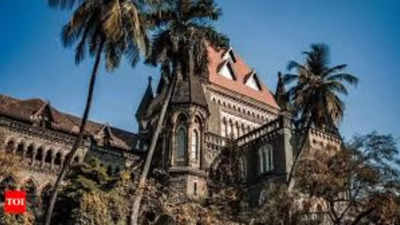Bombay high court quashes ED case against V Hotels, upholds corporate debtor immunity post-IBC resolution – Times of India


MUMBAI: The Bombay High Court quashed an Enforcement Directorate (ED) case under the Prevention of Money Laundering Act (PMLA) filed against V Hotels, owner of Tulip Star, formerly the iconic Centaur Hotel in Juhu, and its April attachment of the hotel’s 12 properties across Juhu and Malad, Mumbai. A day before a bankruptcy court approved a builder’s acquisition of the debtor, V Hotels Ltd, the ED sought to provisionally attach the properties.
The High Court, in a recent judgment, held that once a resolution plan is approved under the Insolvency and Bankruptcy Code (IBC) and a change in the company’s management is effective, the property of the corporate debtor would also get immunity from further prosecution of proceedings. Once the law is clear, the ED’s attachment, either provisionally or otherwise, cannot continue even for a day longer after the approval of the resolution plan, observed a two-judge bench of Justices B P Colabawalla and Somasekhar Sundaresan. The judgment of November 28 was made available on December 7.
The properties were sold under the resolution plan for Rs 520 crore. The ED, in its May complaint, noted the change in the form of ‘proceeds of crime’ and said the amount should be attached instead. However, while confirming the provisional attachment on October 16, the ED attached the land and other immovable assets mentioned in the provisional order. The High Court noted this as another reason to quash the ED complaint and the attachment.
The hotel had petitioned the High Court to quash the ED’s complaint, attachment orders, and proceedings under PMLA against it. The debt-ridden hotel, represented by Senior Counsel Janak Dwarkadas, said it successfully underwent a corporate insolvency resolution before the National Company Law Tribunal (NCLT) on April 26, hence the ED action against the company must be quashed.
Dwarkadas and Cyrus Ardeshir, senior counsel for Macrotech Developers, which acquired V Hotels under the corporate insolvency restructuring plan, both cited the IBC provisions. They said once NCLT approved the plan, the debtor could not be prosecuted any further from the date of approval of the resolution plan. No action can be taken against its assets—covered under the restructuring plan—for any offence committed before the commencement of the CIRP when it goes to an undisqualified third party. Dwarkadas also argued that it was only after the NCLT order was publicised on April 28 that the ED action came forth.
Ayush Kedia, for the ED, raised preliminary objections, arguing that the hotel, before rushing to the High Court, had an ‘alternate remedy’ and could appeal against attachment under PMLA. The High Court dismissed it, saying despite the law being clear, the ED didn’t lift the attachment to date.
The ED also said its attachment does not impede the restructuring efforts. The NCLT order, upheld even by the Supreme Court, can proceed without transferring ownership of the attached properties until the allegations of money laundering are adjudicated. The ED said its actions are meant to prevent misuse of the insolvency process to evade scrutiny for financial misconduct. “Allowing the petitioner to retain the proceeds of crime under the guise of a ‘clean slate’ would set a dangerous precedent and compromise public interest,’’ the ED counsel argued, seeking dismissal of the hotel’s petition.
The High Court analysed the relevant provisions of the IBC and said, “In fact, Section 32A(1) clearly lays down that the liability of the corporate debtor for an offence committed prior to the commencement of the CIRP shall cease. The corporate debtor is explicitly protected from being prosecuted any further for such offence, with effect from the approval of the resolution plan.’’ The immunity lapses if the new management remains in control of the debtor or constitutes persons the ED believes abetted or conspired in the alleged crime, said the High Court.
The High Court clarified, “other than the corporate debtor who has undergone a successful CIRP, all other accused remain on the hook and it is the corporate debtor alone who gets the statutory stipulated immunity’’.















